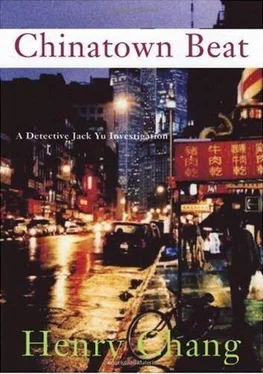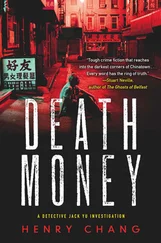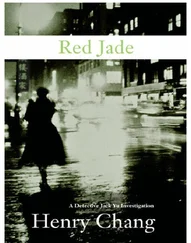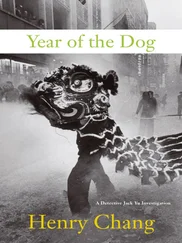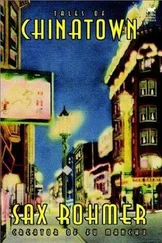Henry Chang - Chinatown Beat
Здесь есть возможность читать онлайн «Henry Chang - Chinatown Beat» весь текст электронной книги совершенно бесплатно (целиком полную версию без сокращений). В некоторых случаях можно слушать аудио, скачать через торрент в формате fb2 и присутствует краткое содержание. Жанр: Полицейский детектив, на английском языке. Описание произведения, (предисловие) а так же отзывы посетителей доступны на портале библиотеки ЛибКат.
- Название:Chinatown Beat
- Автор:
- Жанр:
- Год:неизвестен
- ISBN:нет данных
- Рейтинг книги:3 / 5. Голосов: 1
-
Избранное:Добавить в избранное
- Отзывы:
-
Ваша оценка:
- 60
- 1
- 2
- 3
- 4
- 5
Chinatown Beat: краткое содержание, описание и аннотация
Предлагаем к чтению аннотацию, описание, краткое содержание или предисловие (зависит от того, что написал сам автор книги «Chinatown Beat»). Если вы не нашли необходимую информацию о книге — напишите в комментариях, мы постараемся отыскать её.
Chinatown Beat — читать онлайн бесплатно полную книгу (весь текст) целиком
Ниже представлен текст книги, разбитый по страницам. Система сохранения места последней прочитанной страницы, позволяет с удобством читать онлайн бесплатно книгу «Chinatown Beat», без необходимости каждый раз заново искать на чём Вы остановились. Поставьте закладку, и сможете в любой момент перейти на страницу, на которой закончили чтение.
Интервал:
Закладка:
But eleven o'clock came around faster than he expected.
The tears welled up quickly in her sloe eyes.
"Men have hurt me tonight, again," Mona whispered.
Johnny stood quietly and wrapped his arms around her until there were no more words. That's how it was with Mona. Her words came infrequently, calculated, wrapped in precise phrases full of poignancy and passion, but it was the heartbreak in her face, the tears spilling from her eyes, the quiver of her lips, the shiver of her body when he pulled her close, for him that was her true expression.
There was no escape from these images, Johnny knew. They wrenched his heart, and shredded his toughness. She was making him as vulnerable as he thought she was, and then, the other drivers laughingly warned him, she'd nail him.
He couldn't say no to anything she desired.
Later, when they lay together in his tenement flat, there was no need for the words he didn't have, the only sounds coming from the slap and pull of their bodies against each other, the soft clutching groans and whispers leading to hard, fast breathing and the sharp anguished cry of desperate pleasure.
Undercovers
Jack Yu leaned back from his desk in the empty squad room, tilted his head and rolled his neck over his bunched shoulders. He heard the ligaments pop, took a deep breath. There was a rotted wood smell from inside the floorboards that floated out every time it rained. He'd noticed it when he transferred precincts in July, during a week of summer storms. Now the rain that should have come in August arrived in October, cooling down Indian Summer, giving weight to the soggy leaves that blew into piles in the neighborhood parks.
The Fifth Precinct stationhouse, the 0-Five, was the oldest in the city, a four-story Federalist walk-up made of red brick, fronted by matching lanterns of Kelly green. The lanterns glowed in the mist, and rain dripped from the scrollwork around numerals that ran across the top of the building: 1881.
The blue-and-whites parked out front, up and down Elizabeth Alley, and out to Canal Street. Scooters. Vans. Undercover Dodges.
Jack could see them from the squad-room window, rolling out. The night patrols. He checked his watch. It was after ten, at the end of a long week full of bad dreams and sleepless fatigue. He knew he should go home. He had the weekend off and much to do.
He scanned the room, a shabby array of cluttered metal desks bumped up against each other across the creaky wooden floor. There was a color computer monitor but under the light from the dirty fluorescent overheads everything else was gray, worn. A bank of small steel lockers the detectives used. The surplus secretarial chairs. Across the long wall opposite him, sheets of assignment data and faded Wanted posters, covering like wallpaper anything that wasn't cracked and peeling.
He stroked the thin line of scar tissue that ran across his left brow, a nervous tic. His mind was drifting elsewhere and he clicked off the cheap fluorescent desk lamp, pushed back from the tangle of paperwork and open-case files. He ran his trigger fingers in tight circles around his temples and closed his eyes.
Running Dogs
Of the twenty-eight thousand, eight hundred and sixty-nine officers in the New York City Police Department, Jack Yu was the eighty-eighth cop of Chinese-American heritage. A lucky number, he once thought. At a sinewy five-foot-ten, he'd have failed the height requirement of a decade earlier. Now, four years into his career, he'd been transferred to Chinatown, back into his old neighborhood, a detective second grade.
After four months here he realized that working in the 0-Five was like living in two worlds at the same time. In a precinct that was ninety-nine percent yellow, the Commanding Officer was named Salvatore Marino, and the beat cops were ninety-nine percent white. The white cops put in their shifts, then beat a quick retreat back to the welcome of white enclaves beyond the colored reaches of the inner city. Chinatown was like a foreign port to them, full of experiences confounding to the average Caucasian mind. Don't worry about it, fake, its Chinatown. They were able to dismiss it as a troublesome nightmare, half-remembered and unfathomable. These Chinese were creatures unlike themselves, existing in a world where the English language and white culture carried little significance. Generations of sons and daughters of the Celestial Kingdom, they lived their lives by their own set of odd cultural rules. When a crime was committed, no one ever saw or heard anything. When the cops rousted them, it was a Chinese fire drill.
But Jack had grown up in Chinatown, knew what it felt like to look and breathe Chinese, to savorfoo yee, ga lei, pungent and spicy aromas that white precinct cops wrinkled up their noses at, to speak and decipher regional dialects that sounded to the others like a back-alley cockfight.
He could remember a boyhood time when there were no Chinese cops, no Asian Squad, no interpreters, no community liaison, only gwai to white devil faces in the blue uniforms howling watseemotta no speakeeEnglee?
Four months after his transfer, his father passed away in the Chinatown tenementJack remembered growing up in. Realizing Jack was a cop, the landlord graciously allowed him the full month to clear out his father's belongings, purposely Jack figured-never once mentioning the key money he'd taken from the old man those many long years ago.
When he opened his eyes, nothing had changed except the sound of the rain falling harder outside. Now, with his father six days in the still-soft ground of Evergreen Hills, he was feeling the tiredness heavy in his bones, the fung sup, arthritis, setting in. He adjusted the Detective Special nestled in the small of his back, then rose from the desk and took a black canvas knapsack from the steel lockers, checked it for disposable cameras, a pager, cellular phone, a silver flask. He went down the hundred-year-old stairs, exited onto Elizabeth Alley and followed the streets back to the Mott Street tenement he'd grown up in.
Dogs
The rain came down in thick sheets, rattled the stairwell windows as Jack climbed with leaden legs the five flights of tenement squalor.
Pa had lived here, all his forty-nine years of Chinatown life. A dead dog, the Chinese numbers meant: forty-nine, say gow.
Time and again Jack had asked Pa to move. Uptown. Crosstown. Queens maybe. A decent apartment they could rent somewhere, where the winter freeze didn't sneak in through the windows, where the dank misery of changing seasons didn't settle on the bedcovers. Where vermin didn't feast on the kitchen table, in the toilet, under the pillow.
Pa wouldn't hear of it, angry each time Jack brought it up. Where would he get his Chinese vegetables? His Chinese newspapers? Where would he find his cronies to gossip with, to keep track of who died, who lost at the track? All the important things. Didn't matter, Jack would say. There were three Chinatowns now. Sunset Park. Or Flushing.
Flushing, too far, would be Pa's answer. And Brooklyn, too many halt yun-blacks.
New frontiers were opening up for old-timers stuck too long, for newcomers too long locked out. No longer was the Chinese community defined by a single geographic boundary, but by a single consciousness of race. Not that any of that had mattered to Jack. He knew who he was, but knew he needed another space to live in, to be free from the burden his past here placed on him. But they trapped themselves, the old bachelors, wrapping themselves in their fierce Chineseness, taking pride in their disdain for American ways. Jack's ways. The man accusing the boy of trying to be white. Father and son were at cross-cultural odds, their lives a clash.
The keys were old and tarnished, the metal edges worn smooth and rounded from a hundred thousand turns. The lock itself was older than the keys, older than the grime in the hallway.
Читать дальшеИнтервал:
Закладка:
Похожие книги на «Chinatown Beat»
Представляем Вашему вниманию похожие книги на «Chinatown Beat» списком для выбора. Мы отобрали схожую по названию и смыслу литературу в надежде предоставить читателям больше вариантов отыскать новые, интересные, ещё непрочитанные произведения.
Обсуждение, отзывы о книге «Chinatown Beat» и просто собственные мнения читателей. Оставьте ваши комментарии, напишите, что Вы думаете о произведении, его смысле или главных героях. Укажите что конкретно понравилось, а что нет, и почему Вы так считаете.
